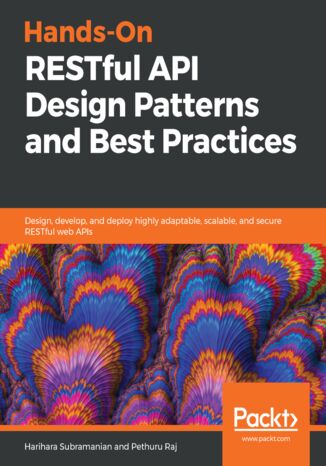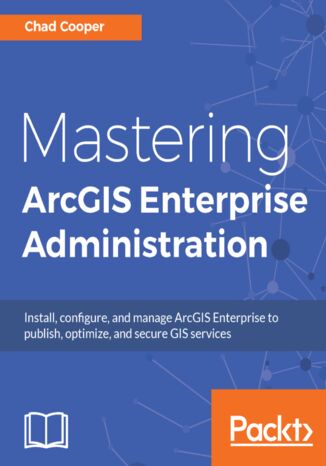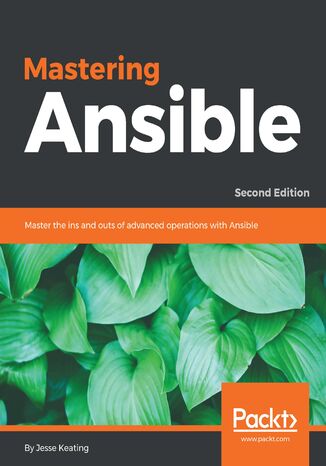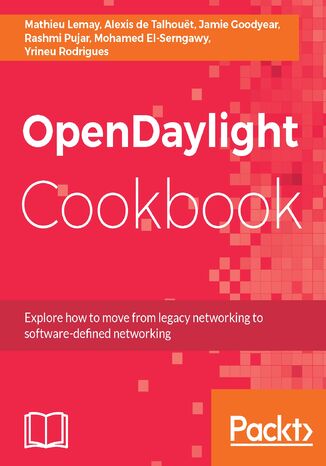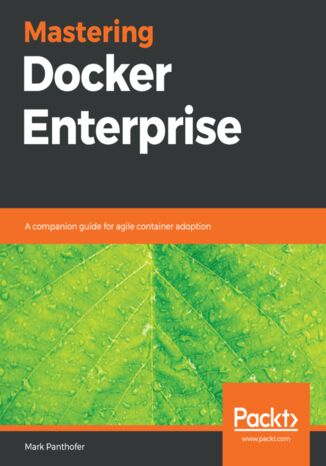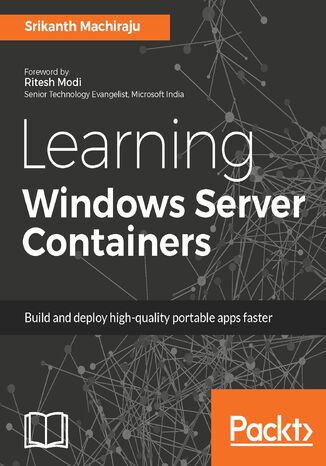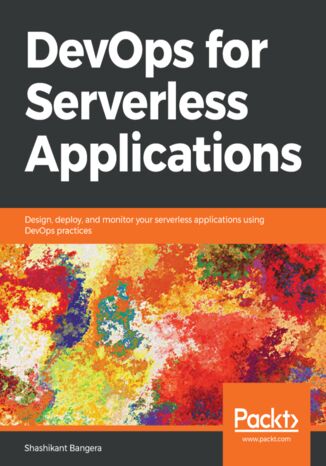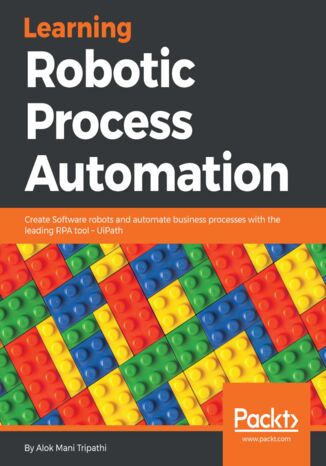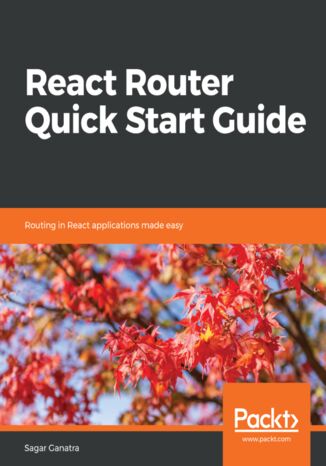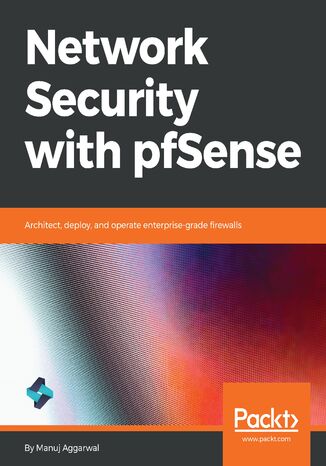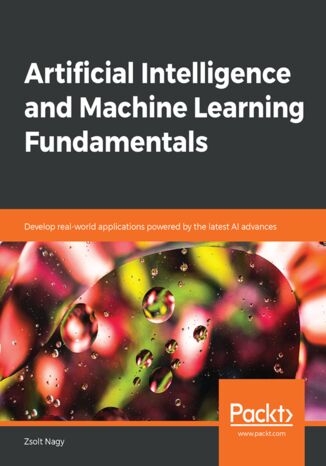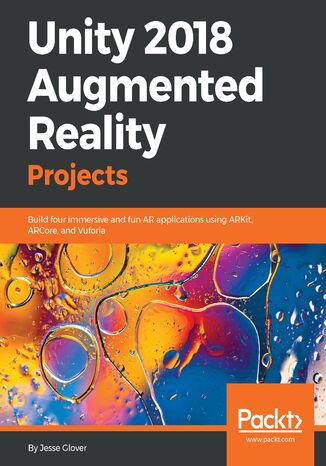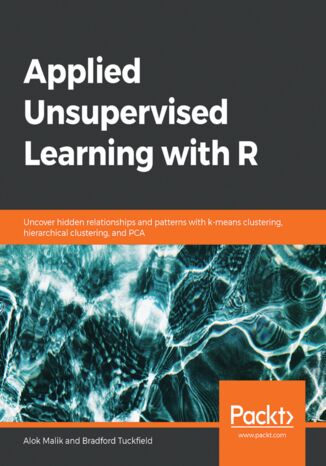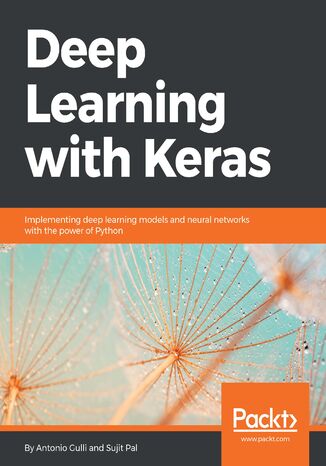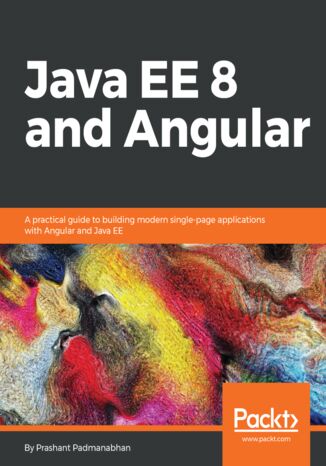Categories
Ebooks
-
Business and economy
- Bitcoin
- Businesswoman
- Coaching
- Controlling
- E-business
- Economy
- Finances
- Stocks and investments
- Personal competence
- Computer in the office
- Communication and negotiation
- Small company
- Marketing
- Motivation
- Multimedia trainings
- Real estate
- Persuasion and NLP
- Taxes
- Social policy
- Guides
- Presentations
- Leadership
- Public Relation
- Reports, analyses
- Secret
- Social Media
- Sales
- Start-up
- Your career
- Management
- Project management
- Human Resources
-
For children
-
For youth
-
Education
-
Encyclopedias, dictionaries
-
E-press
- Architektura i wnętrza
- Health and Safety
- Biznes i Ekonomia
- Home and garden
- E-business
- Ekonomia i finanse
- Esoterecism
- Finances
- Personal finance
- Business
- Photography
- Computer science
- HR & Payroll
- For women
- Computers, Excel
- Accounts
- Culture and literature
- Scientific and academic
- Environmental protection
- Opinion-forming
- Education
- Taxes
- Travelling
- Psychology
- Religion
- Agriculture
- Book and press market
- Transport and Spedition
- Healthand beauty
-
History
-
Computer science
- Office applications
- Data bases
- Bioinformatics
- IT business
- CAD/CAM
- Digital Lifestyle
- DTP
- Electronics
- Digital photography
- Computer graphics
- Games
- Hacking
- Hardware
- IT w ekonomii
- Scientific software package
- School textbooks
- Computer basics
- Programming
- Mobile programming
- Internet servers
- Computer networks
- Start-up
- Operational systems
- Artificial intelligence
- Technology for children
- Webmastering
-
Other
-
Foreign languages
-
Culture and art
-
School reading books
-
Literature
- Antology
- Ballade
- Biographies and autobiographies
- For adults
- Dramas
- Diaries, memoirs, letters
- Epic, epopee
- Essay
- Fantasy and science fiction
- Feuilletons
- Work of fiction
- Humour and satire
- Other
- Classical
- Crime fiction
- Non-fiction
- Fiction
- Mity i legendy
- Nobelists
- Novellas
- Moral
- Okultyzm i magia
- Short stories
- Memoirs
- Travelling
- Narrative poetry
- Poetry
- Politics
- Popular science
- Novel
- Historical novel
- Prose
- Adventure
- Journalism, publicism
- Reportage novels
- Romans i literatura obyczajowa
- Sensational
- Thriller, Horror
- Interviews and memoirs
-
Natural sciences
-
Social sciences
-
School textbooks
-
Popular science and academic
- Archeology
- Bibliotekoznawstwo
- Cinema studies
- Philology
- Polish philology
- Philosophy
- Finanse i bankowość
- Geography
- Economy
- Trade. World economy
- History and archeology
- History of art and architecture
- Cultural studies
- Linguistics
- Literary studies
- Logistics
- Maths
- Medicine
- Humanities
- Pedagogy
- Educational aids
- Popular science
- Other
- Psychology
- Sociology
- Theatre studies
- Theology
- Economic theories and teachings
- Transport i spedycja
- Physical education
- Zarządzanie i marketing
-
Guides
-
Game guides
-
Professional and specialist guides
-
Law
- Health and Safety
- History
- Road Code. Driving license
- Law studies
- Healthcare
- General. Compendium of knowledge
- Academic textbooks
- Other
- Construction and local law
- Civil law
- Financial law
- Economic law
- Economic and trade law
- Criminal law
- Criminal law. Criminal offenses. Criminology
- International law
- International law
- Health care law
- Educational law
- Tax law
- Labor and social security law
- Public, constitutional and administrative law
- Family and Guardianship Code
- agricultural law
- Social law, labour law
- European Union law
- Industry
- Agricultural and environmental
- Dictionaries and encyclopedia
- Public procurement
- Management
-
Tourist guides and travel
- Africa
- Albums
- Southern America
- North and Central America
- Australia, New Zealand, Oceania
- Austria
- Asia
- Balkans
- Middle East
- Bulgary
- China
- Croatia
- The Czech Republic
- Denmark
- Egipt
- Estonia
- Europe
- France
- Mountains
- Greece
- Spain
- Holand
- Iceland
- Lithuania
- Latvia
- Mapy, Plany miast, Atlasy
- Mini travel guides
- Germany
- Norway
- Active travelling
- Poland
- Portugal
- Other
- Przewodniki po hotelach i restauracjach
- Russia
- Romania
- Slovakia
- Slovenia
- Switzerland
- Sweden
- World
- Turkey
- Ukraine
- Hungary
- Great Britain
- Italy
-
Psychology
- Philosophy of life
- Kompetencje psychospołeczne
- Interpersonal communication
- Mindfulness
- General
- Persuasion and NLP
- Academic psychology
- Psychology of soul and mind
- Work psychology
- Relacje i związki
- Parenting and children psychology
- Problem solving
- Intellectual growth
- Secret
- Sexapeal
- Seduction
- Appearance and image
- Philosophy of life
-
Religion
-
Sport, fitness, diets
-
Technology and mechanics
Audiobooks
-
Business and economy
- Bitcoin
- Businesswoman
- Coaching
- Controlling
- E-business
- Economy
- Finances
- Stocks and investments
- Personal competence
- Communication and negotiation
- Small company
- Marketing
- Motivation
- Real estate
- Persuasion and NLP
- Taxes
- Social policy
- Guides
- Presentations
- Leadership
- Public Relation
- Secret
- Social Media
- Sales
- Start-up
- Your career
- Management
- Project management
- Human Resources
-
For children
-
For youth
-
Education
-
Encyclopedias, dictionaries
-
E-press
-
History
-
Computer science
-
Other
-
Foreign languages
-
Culture and art
-
School reading books
-
Literature
- Antology
- Ballade
- Biographies and autobiographies
- For adults
- Dramas
- Diaries, memoirs, letters
- Epic, epopee
- Essay
- Fantasy and science fiction
- Feuilletons
- Work of fiction
- Humour and satire
- Other
- Classical
- Crime fiction
- Non-fiction
- Fiction
- Mity i legendy
- Nobelists
- Novellas
- Moral
- Okultyzm i magia
- Short stories
- Memoirs
- Travelling
- Poetry
- Politics
- Popular science
- Novel
- Historical novel
- Prose
- Adventure
- Journalism, publicism
- Reportage novels
- Romans i literatura obyczajowa
- Sensational
- Thriller, Horror
- Interviews and memoirs
-
Natural sciences
-
Social sciences
-
Popular science and academic
-
Guides
-
Professional and specialist guides
-
Law
-
Tourist guides and travel
-
Psychology
- Philosophy of life
- Interpersonal communication
- Mindfulness
- General
- Persuasion and NLP
- Academic psychology
- Psychology of soul and mind
- Work psychology
- Relacje i związki
- Parenting and children psychology
- Problem solving
- Intellectual growth
- Secret
- Sexapeal
- Seduction
- Appearance and image
- Philosophy of life
-
Religion
-
Sport, fitness, diets
-
Technology and mechanics
Videocourses
-
Data bases
-
Big Data
-
Biznes, ekonomia i marketing
-
Cybersecurity
-
Data Science
-
DevOps
-
For children
-
Electronics
-
Graphics/Video/CAX
-
Games
-
Microsoft Office
-
Development tools
-
Programming
-
Personal growth
-
Computer networks
-
Operational systems
-
Software testing
-
Mobile devices
-
UX/UI
-
Web development
-
Management
Podcasts
Harihara Subramanian J, Pethuru Raj
This book deals with the Representational State Transfer (REST) paradigm, which is an architectural style that allows networked devices to communicate with each other over the internet. With the help of this book, you’ll explore the concepts of service-oriented architecture (SOA), event-driven architecture (EDA), and resource-oriented architecture (ROA). This book covers why there is an insistence for high-quality APIs toward enterprise integration.It also covers how to optimize and explore endpoints for microservices with API gateways and touches upon integrated platforms and Hubs for RESTful APIs. You’ll also understand how application delivery and deployments can be simplified and streamlined in the REST world. The book will help you dig deeper into the distinct contributions of RESTful services for IoT analytics and applications.Besides detailing the API design and development aspects, this book will assist you in designing and developing production-ready, testable, sustainable, and enterprise-grade APIs. By the end of the book, you’ll be empowered with all that you need to create highly flexible APIs for next-generation RESTful services and applications.
ArcGIS Enterprise, the next evolution of the ArcGIS Server product line, is a full-featured mapping and analytics platform. It includes a powerful GIS web services server and a dedicated Web GIS infrastructure for organizing and sharing your work. You will learn how to first install ArcGIS Enterprise to then plan, design, and finally publish and consume GIS services. You will install and configure an Enterprise geodatabase and learn how to administer ArcGIS Server, Portal, and Data Store through user interfaces, the REST API, and Python scripts.This book starts off by explaining how ArcGIS Enterprise 10.5.1 is different from earlier versions of ArcGIS Server and covers the installation of all the components required for ArcGIS Enterprise. We then move on to geodatabase administration and content publication, where you will learn how to use ArcGIS Server Manager to view the server logs, stop and start services, publish services, define users and roles for security, and perform other administrative tasks. You will also learn how to apply security mechanisms on ArcGIS Enterprise and safely expose services to the public in a secure manner. Finally, you’ll use the RESTful administrator API to automate server management tasks using the Python scripting language. You’ll learn all the best practices and troubleshooting methods to streamline the management of all the interconnected parts of ArcGIS Enterprise.
Mastering Ansible. Master the ins and outs of advanced operations with Ansible - Second Edition
This book provides you with the knowledge you need to understand how Ansible 2.1 works at a fundamental level and leverage its advanced capabilities. You'll learn how to encrypt Ansible content at rest and decrypt data at runtime. You will master the advanced features and capabilities required to tackle the complex automation challenges of today and beyond. You will gain detailed knowledge of Ansible workflows, explore use cases for advanced features, craft well thought out orchestrations, troubleshoot unexpected behaviour, and extend Ansible through customizations. Finally, you will discover the methods used to examine and debug Ansible operations, helping you to understand and resolve issues.By the end of the book, the readers will be able to unlock the true power of the Ansible automation engine and will tackle complex real world actions with ease.
OpenDaylight Cookbook. Deploy and operate software-defined networking in your organization
Alexis de Talhouët, Mathieu Lemay, Mohamed Elserngawy, Jamie Goodyear, ...
OpenDaylight is an open source platform to program and build Software-Defined Networks (SDN). Its aim is to accelerate the adoption of SDN and NFV. With above 90 practical recipes, this book will help you to solve day-to-day problems and maintenance tasks surrounding OpenDaylight’s implementation.This book starts with the OpenDaylight fundamentals. In this book, you will gain a sound understanding of the methods and techniques when deploying OpenDaylight in production environment. Later on, you will learn to create a Service Chain using SFC. This book will address common problems and day-to-day maintenance tasks with OpenDaylight. We’ll also will teach you how to interact with OpenDaylight APIs and use the necessary tools to simulate networks. You will also explore how to create your own branded OpenDaylight along with authorising and authenticating users using OpenDaylight Identity Manager.By the end of this book, you will have the necessary skills to operate an OpenDaylight SDN environment.
Mastering Docker Enterprise. A companion guide for agile container adoption
While known mostly as the open source engine behind tens of millions of server nodes, Docker also offers commercially supported enterprise tooling known as the Docker Enterprise. This platform leverages the deep roots from Docker Engine - Community (formerly Docker CE) and Kubernetes, but adds support and tooling to efficiently operate a secure container platform at scale. With hundreds of enterprises on board, best practices and adoption patterns are emerging rapidly. These learning points can be used to inform adopters and help manage the enterprise transformation associated with enterprise container adoption. This book starts by explaining the case for Docker Enterprise, as well as its structure and reference architecture. From there, we progress through the PoC,pilot and production stages as a working model for adoption, evolving the platform’s design and configuration for each stage and using detailed application examples along the way to clarify and demonstrate important concepts.The book concludes with Docker’s impact on other emerging software technologies, such as Blockchain and Serverless computing.By the end of this book, you’ll have a better understanding of what it takes to get your enterprise up and running with Docker Enterprise and beyond.
Learning Windows Server Containers. Build and deploy high-quality portable apps faster
Windows Server Containers are independent, isolated, manageable and portable application environments which are light weight and shippable. Decomposing your application into smaller manageable components or MicroServices helps in building scalable and distributed application environments. Windows Server Containers have a significant impact on application developers, development operations (DevOps) and infrastructure management teams. Applications can be built, shipped and deployed in a fast-paced manner on an easily manageable and updatable environment.Learning Windows Server Containers teaches you to build simple to advanced production grade container based application using Asp.Net Core, Visual Studio, Azure, Docker and PowerShell technologies. The book teaches you to build and deploy simple web applications as Windows and Hyper-V containers on Windows 10 and Windows Server 2016 on Azure. You will learn to build on top of Windows Container Base OS Images, integrate with existing images from Docker Hub, create custom images and publish to Hub. You will also learn to work with storage containers built using Volumes and SQL Server as container, create and configure custom networks, integrate with Redis Cache containers, configure continuous integration and deployment pipelines using VSTS and Git Repository. Further you can also learn to manage resources for a container, setting up monitoring and diagnostics, deploy composite container environments using Docker Compose on Windows and manage container clusters using Docker Swarm. The last chapter of the book focuses on building applications using Microsoft’s new and thinnest server platform – Nano Servers.
Serverless applications are becoming very popular among developers and are generating a buzz in the tech market. Many organizations struggle with the effective implementation of DevOps with serverless applications. DevOps for Serverless Applications takes you through different DevOps-related scenarios to give you a solid foundation in serverless deployment.You will start by understanding the concepts of serverless architecture and development, and why they are important. Then, you will get to grips with the DevOps ideology and gain an understanding of how it fits into the Serverless Framework. You'll cover deployment framework building and deployment with CI and CD pipelines for serverless applications. You will also explore log management and issue reporting in the serverless environment. In the concluding chapters, you will learn important security tips and best practices for secure pipeline management.By the end of this book, you will be in a position to effectively build a complete CI and CD delivery pipeline with log management for serverless applications.
Robotic Process Automation (RPA) enables automating business processes using software robots. Software robots interpret, trigger responses, and communicate with other systems just like humans do. Robotic processes and intelligent automation tools can help businesses improve the effectiveness of services faster and at a lower cost than current methods.This book is the perfect start to your automation journey, with a special focus on one of the most popular RPA tools: UiPath.Learning Robotic Process Automation takes you on a journey from understanding the basics of RPA to advanced implementation techniques. You will become familiar with the UiPath interface and learn about its workflow. Once you are familiar with the environment, we will get hands-on with automating applications such as Excel, SAP, Windows and web applications, screen and web scraping, working with user events, and we'll cover exceptions and debugging. By the end of the book, you'll not only be able to build your first software robot, but you'll also wire it up to perform various automation tasks with the help of best practices for robot deployment.
React Router Quick Start Guide. Routing in React applications made easy
React Router is the routing library for React, and it can be used in both React Web and React Native applications. This book is a simple way to get started with React Router and harness its full power for your applications.The book starts with an introduction to React Router and teaches you how to create your first route using the React component. You will then learn about configuring your routes, passing parameters, and creating nested routes. You will be introduced to various components in React-Router and learn different configuration options available for these components. You will then see how to use the Redirect and Switch components. For even greater ?exibility, you will learn about BrowserRouter, HashRouter, NativeRouter, and StaticRouter.By the end of the book, you will have set up a project with React Router and make routing configuration work in a server-side rendered React application, a mobile application built with React Native and also understand how Redux and React-Router can be used in the same application.
Network Security with pfSense. Architect, deploy, and operate enterprise-grade firewalls
While connected to the internet, you’re a potential target for an array of cyber threats, such as hackers, keyloggers, and Trojans that attack through unpatched security holes. A firewall works as a barrier (or ‘shield’) between your computer and cyberspace. pfSense is highly versatile firewall software. With thousands of enterprises using pfSense, it is fast becoming the world's most trusted open source network security solution.Network Security with pfSense begins with an introduction to pfSense, where you will gain an understanding of what pfSense is, its key features, and advantages. Next, you will learn how to configure pfSense as a firewall and create and manage firewall rules. As you make your way through the chapters, you will test pfSense for failover and load balancing across multiple wide area network (WAN) connections. You will then configure pfSense with OpenVPN for secure remote connectivity and implement IPsec VPN tunnels with pfSense. In the concluding chapters, you’ll understand how to configure and integrate pfSense as a Squid proxy server.By the end of this book, you will be able to leverage the power of pfSense to build a secure network.
Machine learning and neural networks are pillars on which you can build intelligent applications. Artificial Intelligence and Machine Learning Fundamentals begins by introducing you to Python and discussing AI search algorithms. You will cover in-depth mathematical topics, such as regression and classification, illustrated by Python examples.As you make your way through the book, you will progress to advanced AI techniques and concepts, and work on real-life datasets to form decision trees and clusters. You will be introduced to neural networks, a powerful tool based on Moore's law.By the end of this book, you will be confident when it comes to building your own AI applications with your newly acquired skills!
Augmented Reality allows for radical innovations in countless areas. It magically blends the physical and virtual worlds, bringing applications from a screen into your hands. Meanwhile, Unity has now become the leading platform to develop augmented reality experiences, as it provides a great pipeline for working with 3D assets.Using a practical and project-based approach, Unity 2018 Augmented Reality Projects educates you about the specifics of augmented reality development in Unity 2018.This book teaches you how to use Unity in order to develop AR applications which can be experienced with devices such as HoloLens and Daydream. You will learn to integrate, animate, and overlay 3D objects on your camera feed, before gradually moving on to implementing sensor-based AR applications. In addition to this, you will explore the technical considerations that are especially important and possibly unique to AR. The projects in the book demonstrate how you can build a variety of AR experiences, whilst also giving insights into C# programming as well as the Unity 3D game engine via the interactive Unity Editor.By the end of the book, you will be equipped to develop rich, interactive augmented reality experiences for a range of AR devices and platforms using Unity.
Alok Malik, Bradford Tuckfield
Starting with the basics, Applied Unsupervised Learning with R explains clustering methods, distribution analysis, data encoders, and features of R that enable you to understand your data better and get answers to your most pressing business questions. This book begins with the most important and commonly used method for unsupervised learning - clustering - and explains the three main clustering algorithms - k-means, divisive, and agglomerative. Following this, you'll study market basket analysis, kernel density estimation, principal component analysis, and anomaly detection. You'll be introduced to these methods using code written in R, with further instructions on how to work with, edit, and improve R code. To help you gain a practical understanding, the book also features useful tips on applying these methods to real business problems, including market segmentation and fraud detection. By working through interesting activities, you'll explore data encoders and latent variable models. By the end of this book, you will have a better understanding of different anomaly detection methods, such as outlier detection, Mahalanobis distances, and contextual and collective anomaly detection.
This book starts by introducing you to supervised learning algorithms such as simple linear regression, the classical multilayer perceptron and more sophisticated deep convolutional networks. You will also explore image processing with recognition of handwritten digit images, classification of images into different categories, and advanced objects recognition with related image annotations. An example of identification of salient points for face detection is also provided.Next you will be introduced to Recurrent Networks, which are optimized for processing sequence data such as text, audio or time series. Following that, you will learn about unsupervised learning algorithms such as Autoencoders and the very popular Generative Adversarial Networks (GANs). You will also explore non-traditional uses of neural networks as Style Transfer.Finally, you will look at reinforcement learning and its application to AI game playing, another popular direction of research and application of neural networks.
Tokenomics. The Crypto Shift of Blockchains, ICOs, and Tokens
Tokenomics is the economy of this new world. This is a no-holds-barred, in-depth exploration of the way in which we can participate in the blockchain economy. The reader will learn the basics of bitcoin, blockchains, and tokenomics; what the very first ICO was; and how over a period of 5 years, various projects managed to raise the enormous sums of money they did. The book then provides insights from ICO experts and looks at what the future holds. By comparing the past, current, and future of this technology, the book will inform anyone, whatever motivates their interest.The crypto shift of blockchains, ICOs, and tokens is much more than just buying bitcoins, creating tokens, or raising millions in a minute in an ICO. It is a new paradigm shift from centralized to decentralized, from closed to open, and from opaqueness to transparency. ICOs and the creation of tokens during the craze of 2017 needed a lot of preparation, an understanding of cryptocurrencies and of emerging legal frameworks, but this has spurred a new movement to tokenize the world.The author gives an unbiased, authoritative picture of the current playing field, exploring the token opportunities and provides a unique insight into the developing world of this tokenized economy. This book will nourish hungry minds wanting to grow their knowledge in this fascinating area.
The demand for modern and high performing web enterprise applications is growing rapidly. No more is a basic HTML frontend enough to meet customer demands. This book will be your one-stop guide to build outstanding enterprise web applications with Java EE and Angular. It will teach you how to harness the power of Java EE to build sturdy backends while applying Angular on the frontend. Your journey to building modern web enterprise applications starts here!The book starts with a brief introduction to the fundamentals of Java EE and all the new APIs offered in the latest release. Armed with the knowledge of Java EE 8, you will go over what it's like to build an end-to-end application, configure database connection for JPA, and build scalable microservices using RESTful APIs running in Docker containers. Taking advantage of the Payara Micro capabilities, you will build an Issue Management System, which will have various features exposed as services using the Java EE backend. With a detailed coverage of Angular fundamentals, the book will expand the Issue Management System by building a modern single page application frontend. Moving forward, you will learn to fit both the pieces together, that is, the frontend Angular application with the backend Java EE microservices. As each unit in a microservice promotes high cohesion, you will learn different ways in which independent units can be tested efficiently.Finishing off with concepts on securing your enterprise applications, this book is a handson guide for building modern web applications.

